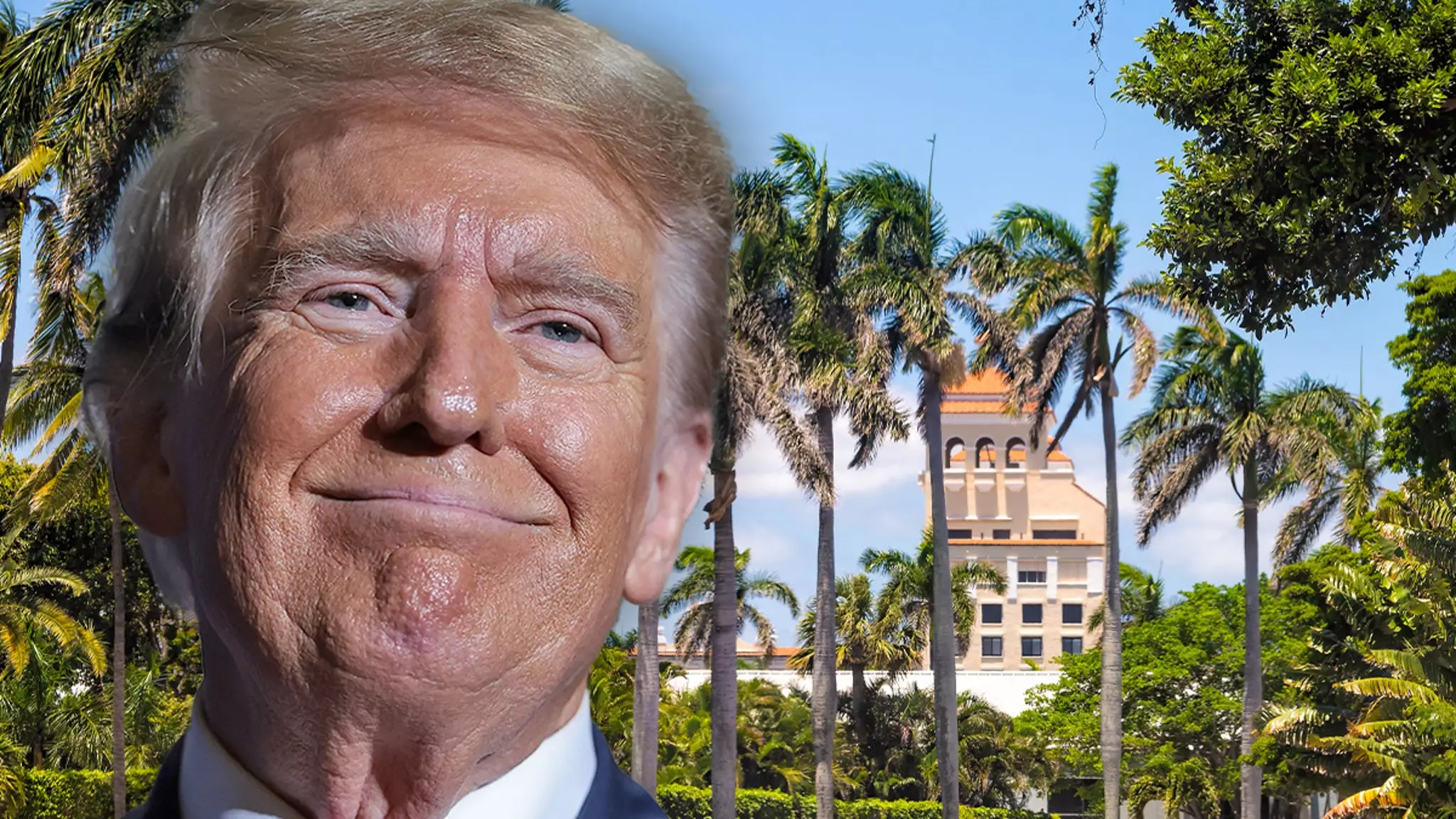In the political landscape shaped by Donald Trump’s presidential endeavors, one aspect that often goes under-discussed is the ripple effect of his presence on surrounding real estate markets. As new security measures roll out around properties associated with Trump, particularly Mar-a-Lago, local residents and prospective buyers face unique challenges. However, the lure of proximity to power appears to outweigh these inconveniences, indicating a complex relationship between politics and real estate.
Living near a high-profile political figure like Donald Trump inherently alters the dynamics of the neighborhood. For those residing close to Mar-a-Lago in Palm Beach, the introduction of extensive security measures will undoubtedly change the way they navigate their daily lives. Former Trump International marketing vice president, Senada Adzem, highlights the complications that may arise due to the increased presence of Secret Service agents and local law enforcement. Street closures, additional security protocols, and a general air of surveillance can create an environment that feels restrictive.
Nonetheless, the reality is that the allure of living nearby, often driven by an aspiration to be part of a privileged community associated with wealth and influence, can supersede these concerns. Many potential buyers are undeterred by the “pain in the ass” of living under heightened security; rather, they are motivated by the prestige of calling such a prominent locality home.
Senada Adzem’s observations about housing market dynamics offer a more nuanced view. While the perceived inconveniences of heightened security might deter some casual buyers, the steadfast enthusiasm of serious buyers remains intact. Those willing to tolerate inconveniences are often attracted to the unique status that comes with owning property near a public figure like Trump, who operates as an emblem of celebrity in the political realm. Their motivations are rarely tied to immediate housing market fluctuations but are driven by aspirations of status and belonging.
Interestingly, despite some speculation surrounding the potential dip in property prices due to the legal troubles facing Trump earlier in the year, the current mood within the market reflects optimism. The assurance of Trump’s electoral success appears to have sparked a reinvigorated interest among buyers, with agents noting a surge in inquiries and offers, particularly from international buyers eager to establish a connection to an iconic American figure.
The role of security is not just a local concern; it also extends to national implications. The involvement of various security agencies, including the U.S. Department of Defense and the National Security Council, adds layers of complexity to the scenario. Preparation for Trump’s second term at Mar-a-Lago reports an array of protective measures, emphasizing the level of threat perception related to his status.
As new procedures are instituted—ranging from security personnel assignments to restrictions on local traffic patterns—it is vital for residents, businesses, and visitors to remain aware of how these changes could affect their interactions with the surroundings. While some may find these developments disruptive, others may view them as an inevitable aspect of living in a politically charged environment.
Real estate valuations in Palm Beach and similar areas are often influenced by broader economic factors as well as localized happenings. Adzem asserts that despite the complexities introduced by Trump’s presidency, the area will not see volatile fluctuations in home prices as a direct result. This stability indicates the resilience of the luxury real estate sector even amidst unpredictable political climates.
Ultimately, it suggests that political figures can harbor a quasi-marketing influence on nearby property values, instilling a sense of exclusivity that entices buyers. The underlying theme remains resolute: living in proximity to power was never purely about logistical convenience but rather an investment in an identity that draws individuals from various walks of life, desperate to affiliate with the narrative of sovereignty and prestige.
While Trump’s presidency generates extensive dialogues about policy and governance, its subtler effects on the real estate landscape reveal a fascinating interplay between personal ambition, societal status, and the inherent value of political proximity. The preference for living near influential figures may not wane, even in the face of increased security measures as long as it appeals to the aspirations of potential homebuyers.

Leave a Reply